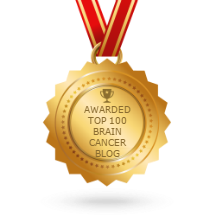As some of you know Deb has suffered from palpitations for many years. Usually she has one or two episodes a year which last about one to two hours. While having a palpitation Deb's pulse goes up to 190 beats per minute and her blood pressure drops. Around Christmas Deb had 3 episodes in quick succession and we mentioned this to the oncologist in case it was related to the tumour treatment. He said not but that the condition should be treated. Our GP referred Deb to a cardiologist who we saw on 6 February at our local hospital (Good Hope). He said he could not do much until we had identified what type of arrhythmia it was. However we discussed various options including taking pills to stop it happening (Deb was not keen on more pills) or having a recoding device implanted under the skin that could be activated when an attack occurred. In the end we settled on getting to our GP/hospital as soon as a palpitation started and putting Deb onto an ECG.
At about 04:30 pm on Friday 13th ( Liz was visiting us) Deb had a palpitation. We went to our GP's surgery and the nurse put Deb directly onto an ECG. This confirmed that Deb was suffering from a type of arrhythmia called supraventricular tachycardia (SVT). The rapid beating of the heart during SVT can make the heart a less effective pump so that the cardiac output is decreased and the blood pressure drops. The following symptoms are typical with a rapid pulse of 150-250 beats per minute: pounding chest, shortness of breath, rapid breathing and dizziness.
The GP referred us to Good Hope with a letter so they would see Deb straight away. This worked. They put Deb in an intensive care cubicle and hooked her up to various monitors. They all started bleeping and flashing alarms. Her pulse rate was about 200 beats per min and was 'extremely tachy'. The doctor tried to stop the attack by getting Deb to blow into a syringe and by manipulating her vagus nerve in her neck Neither of these procedures worked. She was then given an intravenous injection of adenosine. This drug causes transient heart block. Before putting it in the doctor warned Deb she would have a feeling of 'impending doom' while the drug worked. This proved successful and her pulse rate returned to normal.
However they did insist on keeping Deb in overnight for observation. She was eventually discharged about midday on the Saturday. They have prescribed beta blockers which she takes daily and which will hopefully prevent a further attack.
Tuesday, 17 February 2009
Subscribe to:
Post Comments (Atom)

No comments:
Post a Comment